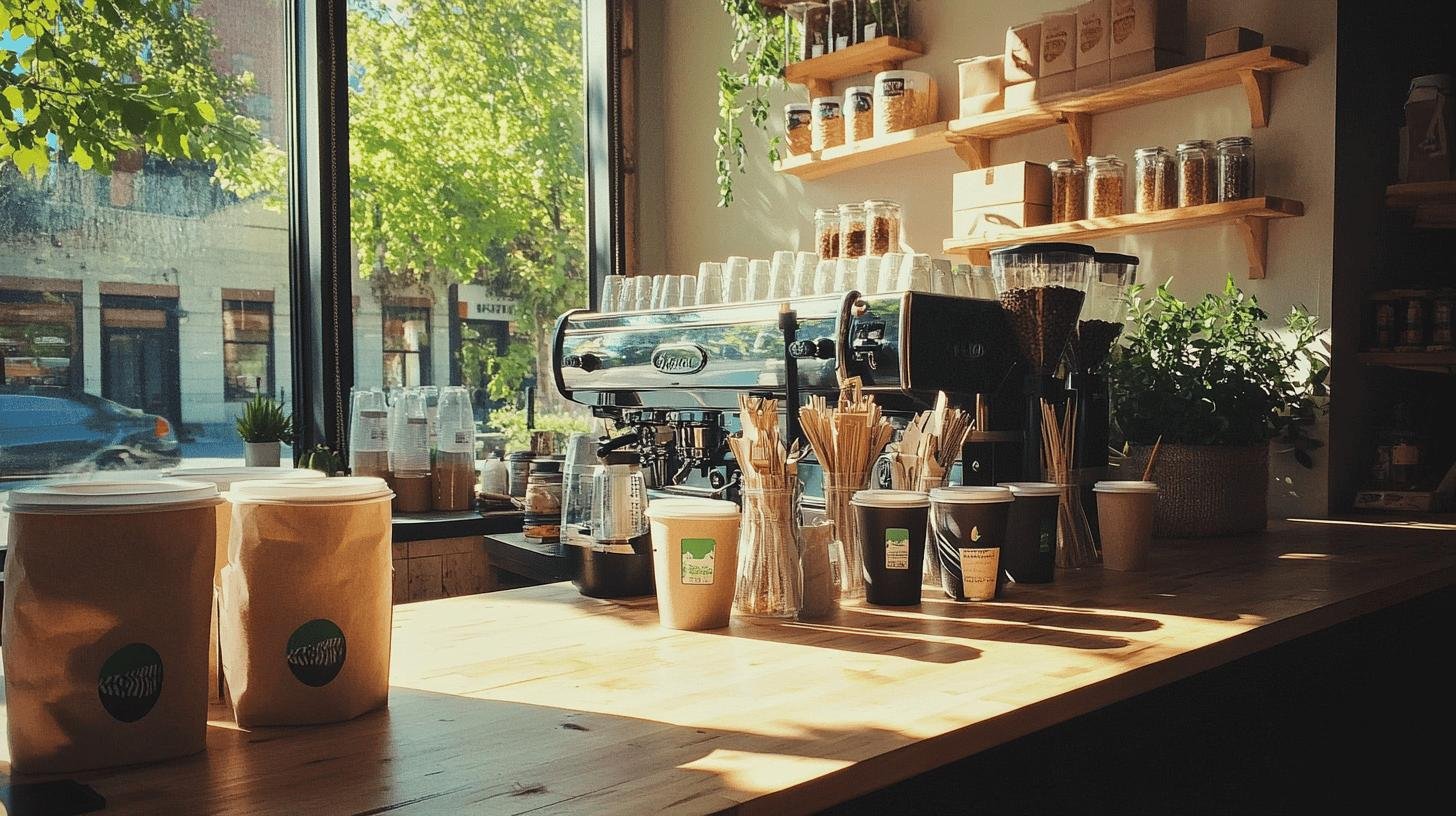TL;DR:
- Key Traits of Thriving Small Town Businesses:
- Community focus and strong local relationships
- Adaptability to changing local needs
- Customer loyalty through trust
- Unique product offerings
- Reliability in quality and service
- Examples of Successful Business Types:
- Hybrid bar/coffee shops
- Antique stores with events
- Fitness studios catering to local activities
- Farm-to-table restaurants
- Community Engagement Strategies:
- Host local events and collaborate with businesses
- Offer loyalty programs and workshops
- Essential Services That Succeed:
- Grocery stores, gas stations, pharmacies, hardware stores, auto repair shops
- Innovative Models:
- Cooperatives, eco-friendly practices, and hybrid business models strengthen communities.
Ever wonder why some small town businesses thrive while others struggle? It’s not just luck—there’s a method behind their success. Small towns across America have local gems, like diners and hardware stores, that manage to stand out. Their secret? Strong community ties, unique offerings, and the ability to adapt to local needs.
This article explores the key traits of small town businesses that thrive and reveals how they turn local challenges into victories. Curious about what makes them tick and how you can learn from their success?
Key Traits of Small Town Businesses That Thrive
For small town businesses, engaging with the community is key. Establishments like mom-and-pop diners and grocery stores flourish by building trust and loyalty among locals. They ensure a steady flow of customers by fostering close relationships. Offering unique products or services is also crucial. When a business has something special—like a unique menu or locally sourced goods—it draws in patrons who appreciate a personal touch. Coupled with understanding local demands, these are the elements of a thriving small-town business.
- Community Focus: Building strong local relationships
- Adaptability: Responding swiftly to changing local needs
- Customer Loyalty: Cultivating repeat business through trust
- Unique Offerings: Providing distinct products or services
- Personalization: Tailoring services to individuals
- Reliability: Consistent quality and service
Success stories from small towns are abundant. Local hardware stores thrive by offering personalized advice and reliable products. Grocery stores become community staples by stocking local favorites and essentials, keeping customers coming back. These businesses leverage their understanding of local needs using the traits mentioned above. This strategy supports growth and enhances the local economy, making them vital to small-town life.
Inspiring Success Stories of Small Town Businesses

In small towns, restaurants often serve as community pillars. Take a local diner that identified a need for a family-friendly spot serving comfort food. By using locally sourced ingredients and classic recipes, it attracted residents and visitors alike. The business model emphasized community ties by hosting local events and supporting nearby farms. This fostered a loyal customer base and steady growth.
Hybrid bar/coffee shops also succeed in rural areas. One such shop met the demand for versatile social spaces allowing for morning coffee and evening drinks. By creating a cozy atmosphere with rotating local art displays, it became a community hub. Hosting open mic nights and workshops further engaged locals. This approach increased foot traffic and secured a stable revenue stream.
Auto repair shops in small towns excel by addressing the specific needs of their communities. One shop specialized in older vehicles prevalent in the area. By hiring skilled technicians and providing quality service, it earned a reputation for reliability. Community involvement, like sponsoring local sports teams and participating in town fairs, cemented its place as a trusted local business. This ensured consistent demand and customer loyalty.
Unique Business Ideas for Small Towns
Innovative business ideas thrive in small towns by catering to local preferences. Residents and visitors enjoy unique experiences. Small towns give businesses the chance to carve niches, making unusual ideas both viable and successful. From a hybrid bar/coffee shop that transitions from serving espresso to craft cocktails or an antique store doubling as a community hangout, these businesses succeed by offering something fresh.
| Hybrid Bar/Coffee Shop | Serves coffee during the day and becomes a bar at night. |
| Antique Store | Sells vintage items and can host events or workshops. |
| Fitness Studio | Offers specialized classes and personal training. |
| Pop-Up Art Gallery | Features local artists with rotating exhibits. |
| Farm-to-Table Restaurant | Focuses on locally sourced ingredients and seasonal dishes. |
Tailoring these ideas to local needs involves understanding community cravings. A fitness studio might offer classes in popular activities like yoga in the park or boot camps. An antique store could host community art shows or historical talks. Aligning with local interests not only draws customers but makes these businesses integral to the community, ensuring their success.
Community-Focused Strategies for Business Growth

Community engagement is vital for small-town businesses. By building strong local relationships, businesses gain trust and ensure lasting loyalty. A community-focused approach allows them to be more than just service providers—they become integral parts of small-town life. This connection helps weather economic changes and creates an environment where customers feel valued.
- Host local events to bring people together.
- Support local causes with profit donations.
- Collaborate with other local businesses for promotions.
- Join community festivals and fairs.
- Offer loyalty programs for repeat customers.
- Hold community workshops or classes.
- Adopt eco-friendly practices to attract conscious consumers.
These strategies have succeeded for many small businesses. For example, a bakery that takes part in town fairs boosts its visibility while supporting community spirit. A hardware store collaborating with local schools for DIY workshops cultivates future customers and enhances its reputation. Aligning with community interests drives sustainable growth and loyalty, securing their role in the local economy.
Essential Services and Profitable Ventures in Small Towns
Essential services are the backbone of small-town economies. Grocery stores, gas stations, and pharmacies meet critical needs and ensure steady revenue. Unlike niche businesses that may struggle in tough times, essential services remain indispensable, guaranteeing success in any economic climate. Their reliability makes them attractive to entrepreneurs in small towns.
- Grocery Stores
- Gas Stations
- Pharmacies
- Hardware Stores
- Auto Repair Shops
These services significantly bolster local economies by creating jobs and supporting other businesses. Grocery stores, for instance, employ staff and source products from nearby farms, strengthening local food supply chains. Gas stations and auto repair shops keep towns connected and mobile, aiding daily commutes and business logistics. By fulfilling basic needs and offering local employment, these businesses energize small-town economies, fostering stability and growth.
Innovative and Sustainable Business Models for Small Towns

Cooperatives, or co-ops, are an innovative business model gaining traction in small towns. A co-op is a business owned and run by a group sharing common needs. They thrive on local involvement and mutual benefit, keeping profits within the community often with lower prices. Starting one isn’t easy; it demands strong community interest. A successful example is a grocery co-op sourcing from nearby farms, benefiting producers and consumers and promoting local agriculture.
Eco-friendly packaging is another rising trend. It cuts waste and attracts eco-conscious consumers, boosting a business’s reputation. While eco-friendly materials can be costlier, impacting budgets, businesses that adopt this practice stand out. For instance, a café using biodegradable cups draws eco-conscious customers, setting a standard for others.
Hybrid business models offer unique small-town opportunities. These models combine various services, maximizing space and resources. A bookstore-café offers a unique customer experience, catering to multiple needs and boosting traffic. Managing such operations can be complex, requiring diverse skills, but those who succeed, like a gym offering wellness workshops, find this approach fosters a strong community hub.
Final Words
Small town businesses that thrive often develop strong community ties and offer unique services catering to local needs. By focusing on community engagement, adaptability, and innovation, they meet essential demands and create loyal customer bases. Success stories highlight the importance of understanding local markets, and incorporating sustainable practices ensures growth and longevity.
Thriving small town businesses enrich their communities and demonstrate the power of local entrepreneurship.
FAQ
What kind of businesses do well in a small town?
Businesses like local grocery stores, mom-and-pop diners, and hardware stores thrive in small towns. They succeed by building community connections and catering to reliable local demand.
What does a small town need to thrive?
A small town thrives with core businesses like grocery stores, gas stations, and pharmacies. These services meet everyday needs and support the town’s economic stability.
What is the cheapest, most profitable business to start in a small town?
Profitable businesses include service-based ventures like lawn care, cleaning services, and home repair. These have low startup costs and meet ongoing community needs.
What small business is the most successful?
Small businesses emphasizing customer loyalty, community engagement, and adaptability tend to be the most successful, like local cafes that serve as community hubs.
What business does every small town need?
Every small town benefits from essential services like a grocery store or pharmacy. They fulfill basic needs and ensure a consistent customer base.
What are some unique business ideas for small towns?
Unique ideas include hybrid bar/coffee shops, fitness studios, and antique stores. These cater to local tastes and offer distinct experiences.
What are some small businesses that help the community?
Community-helping businesses include local co-ops, eco-friendly stores, and service-oriented social enterprises. They support local growth and engage in initiatives benefiting the community.

